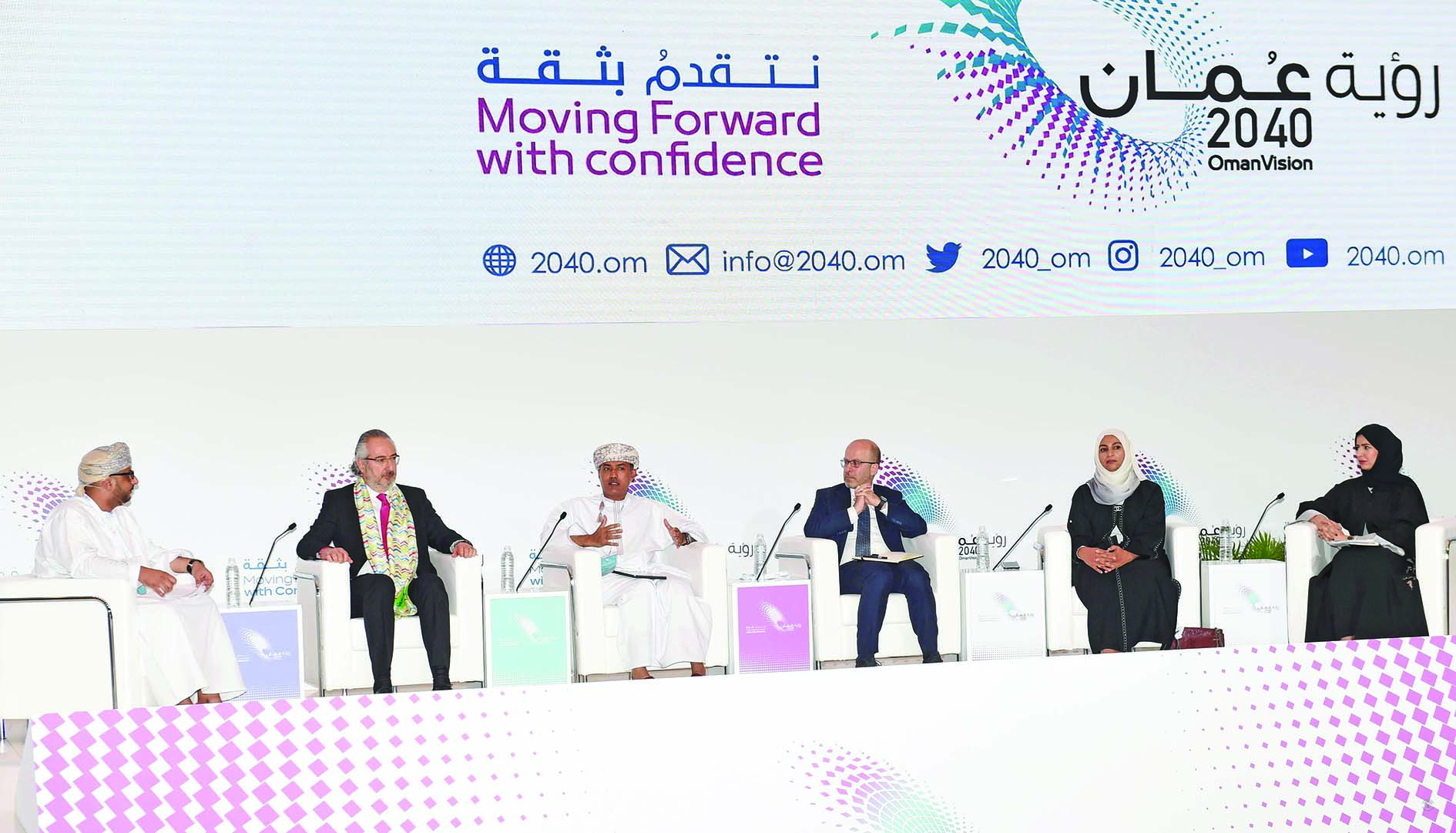
Muscat: The two-day Oman 2040 Vision Conference, which gave the public an insight into the way forward for Oman, saw over 3,372 people attending and over 2 million participating online.
The conference served as a national platform to discuss appropriate mechanisms and possibilities for achieving the vision.
The conference provided an opportunity for participants to exchange ideas and practices in the aspects of sustainable development, and acted as a platform to highlight efforts in preparing Oman’s future 2040 vision.
There were 53 speakers at the conference, of which 73 per cent were Omanis.
The organisers also planned a virtual session for Omanis who are studying abroad, where 564 students participated.
At the end of the conference, Hamad Al Awfi, Undersecretary of the Ministry of Agriculture and Fisheries, Chairman of the committee for National Priorities and Adapting strategies at Oman 2040 vision, highlighted the need to ensure the availability of necessary funding for the implementation of vision programmes, in addition to clearly identifying the future role of all sectors, specifically the government sector.
Al Awfi also discussed the importance of creating mechanisms and policies to cope with the fourth industrial revolution and the need to give young people a greater opportunity to participate in achieving the vision.
According to Al Awfi, developing and modernising legislation and restructuring the labour market based on skilled labour is also a key factor that must be addressed, in addition to linking scientific research and innovation to the national economy.
Topics that were discussed on day two of the conference included the role of the private sector in achieving the vision, managing change and positive guidance for human behaviour, economic cooperation and integration and its importance in achieving the vision, and the final panel reviewed international experiences in achieving long-term visions or plans.
One of Oman’s new directions is to decentralise its economy, which can create more jobs by building multiple economic cities that need similar basic services.
Wong Heang Fang, Board member and Group CEO of Surbana Jurong Private Limited, a Singaporean government-owned consultancy company and one of the speakers, said to Times of Oman, “[Having multiple cities] will probably add to the number of jobs because you end up building ecosystems for each of the cities, which requires duplicated services. When that happens, we can multiply the number of job opportunities in various cities.”
According to him, these job opportunities are rapid and require both knowledge and labour, but not all of that is expat labour. “Investors bring in the know-how and what you need to build a city, but foreign investors will normally not bring everything they need with them. They need the support of the local industry, and so, they will not bring in their own labourers with them.”
“I was looking at Vision 2040 and there is a need to consider local training centres for local talent so that when investors come, they can find talent immediately,” he added. To him, funding and investors were important.
On the second day of the Vision 2040 conference, which featured panels regarding change management, economic synergy, and international best practices for achieving Vision 2040, Vicki Hollub, the CEO of Occidental Petroleum, said that having met many world leaders, she believed that “the greatest leader is His Majesty Sultan Qaboos bin Said”.
“We have placed trust in his wisdom and vision for 2040, and I would like to add that we, based on our work with our Omani employees, also believe in all of you and that we can bring Vision 2040 into fruition,” she added.
Also during Sunday’s panel, Abdullah Salim Al Harthy, Chief Financial Officer of the State General Reserve Fund, said that Oman is already working to learn from other countries when it comes to funding.
He said, “We have an Omani-Japanese food fund which aims to take Japan’s best practices in food security and bring them to Oman, and innovative funding is important. We at the Reserve Fund are working on a secondary fund for infrastructure, which is innovative in that it pools investor funding into public work in the field of infrastructure.”
According to Sriram Viswanathan, Founder and Managing Partner at Indusage, “It is not enough for Oman to chase after developed or developing countries, but rather, to leapfrog towards where the economy is going to be in the future.”
He added that encouraging domestic talent is important. “Oman has an advantage because of its small population. What’s important is how many of the youth are focused on the knowledge economy. It has to be 60-70 per cent. As an example, India has 40 million software developers generating billions of dollars.”
He added, “I think Oman has no choice but to use technology to move ahead.”